Gold Leaf Making Machine
gold, silver, and platinum precious metal foil manufacturing machine helps manufacturers improve production processes.
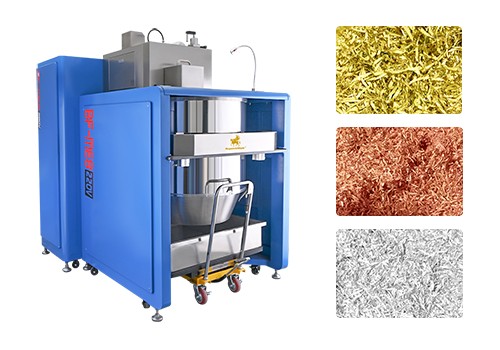
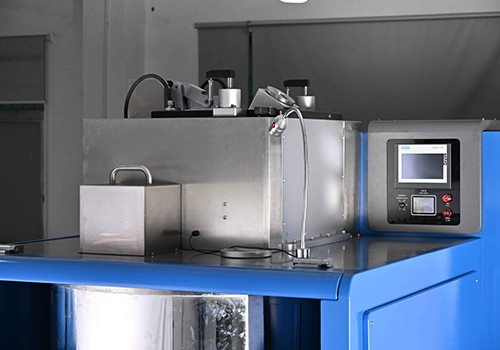
Gold Leaf Making Machine is used to process metals such as gold, silver, platinum, alloys, etc., into thin sheets commonly known as gold leaf or silver leaf. These sheets are utilized in various fields including jewelry making, art, crafts, and food decoration.
Primary function of the SuperbMelt Gold Leaf Making Machine is to assist businesses in the jewelry industry in enhancing production efficiency. Gold leaf, compared to other refining materials, has a faster refining speed and higher efficiency because of its larger contact area when immersed in aqua regia, thus speeding up the production process.
This machine can produce 10-100 kilograms of uniformly shaped and sized gold, silver, platinum, palladium, and other metal foils with thicknesses ranging from 0.15 to 0.35mm within one hour, using water cooling for sheet casting. These foils can be used without drying, meeting the production needs of customers.
The entire machine is operated using an automated PLC system, enabling one-touch operation and significantly reducing labor costs, thereby improving production efficiency!
| Model number | SPB-MS15 | SPB-MS50 | SPB-MS100 |
| Power supply | Three phase 380V, 50/60Hz | Three phase 380V, 50/60Hz | Three phase 380V, 50/60Hz |
| Power | 25w-45 kw | 65kw | 90kw |
| Applicable metal | Platinum, palladium, gold, silver, copper | Platinum, palladium, gold, silver, copper | Platinum, palladium, gold, silver, copper |
| Melting time | 12 min | 15 min | 20 min |
| Max capacity | 15 kg (platinum) | 50 kg (Gold) | 100 kg (Gold) |
| Max temperature | 2600℃ | 2600℃ | 2600℃ |
| Dimension | 2500*2000*2200mm | 2500*2000*2200mm | 2500*2000*2200mm |
| Weight | 900 kg | 1000 kg | 110 kg |
| Using gas | Argon gas / Nitrogen gas | Argon gas / Nitrogen gas | Argon gas / Nitrogen gas |
| The thickness of the leaf | 0.15-0.35mm | 0.15-0.35mm | 0.15-0.35mm |
| Cooling way | Water cooling | Water cooling | Water cooling |
- High Efficiency: Capable of casting 25-100kg kilograms of foils per hour, ensuring a rapid production rate.
- Uniform Shape: Produces foils with consistent size and thickness, making them suitable for refined applications.
- Dry Casting: Utilizes a dry casting method, eliminating the need for drying the finished foils, ready for immediate use after casting.
- Multi-Metal Compatibility: Suitable for a variety of metals including platinum, palladium, gold, alloys, silver, and copper, offering versatility in production.
- Automatic PLC System: Equipped with a state-of-the-art automatic PLC system, featuring a user-friendly interface for one-touch operation, ensuring ease of use.
- Multiple Protections: Incorporates multiple safety features, providing reliable and secure operation throughout the casting process.
- Jewelry manufacturing: Used to produce gold leaf and silver leaf for decorating jewelry such as necklaces, rings, and bracelets.
- Artwork production: Employed in creating gold leaf and silver leaf for embellishing artworks like paintings and sculptures.
- Craft production: Utilized in manufacturing gold leaf and silver leaf for surface decoration of crafts, ornaments, and figurines.
- Food decoration: Applied in the food industry to decorate pastries, chocolates, beverages, etc., enhancing product presentation.
- Medical applications: In medical device manufacturing, gold leaf and silver leaf are commonly used for decoration and materials in artificial joints, dental implants, and other medical instruments.
Why SuperbMelt Gold Leaf Making Machine



Helpful Resource For Your Reference ( An expert about SuperbMelt Gold Leaf Making Machine )
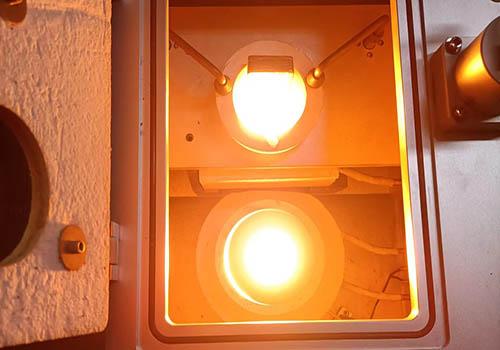
Put metal raw materials into crucible for smelting
SuperbMelt offers more related products for you to choose from
Any Question About SuperbMelt Gold Leaf Making Machine
Gold Leaf Market Guide: From Demand to Manufacturing Value
Core Requirements of Gold Leaf Manufacturing
As an ultra-thin gold product (typically 0.01–0.1 microns thick), gold leaf manufacturing demands strict control over raw materials, processing technology, and precision. These needs directly shape the technical development of gold leaf making machines.
1. Raw Material Requirements
Purity Adaptation: Different applications require different gold purities. For instance, edible-grade gold leaf must be ≥99.9% purity (in accordance with GB 2760 standards), while electronic-grade gold leaf must be ≥99.99%. The machine must feature raw material pretreatment functions (such as impurity removal and refining) to ensure product consistency and performance.
Material Form: Gold must be pre-processed into standardized gold ingots (typically 10–50g per block). The casting module of the machine must precisely control temperature (melting point of gold: 1064°C) and cooling speed to ensure uniform density, forming a stable base for subsequent rolling.
2. Process and Precision Requirements
Ultra-thin Forming: Manual hammering struggles to achieve stable thickness below 0.05 microns. The machine must perform multi-stage precision rolling (10–15 passes) combined with tension control to prevent tearing and uneven thickness.
Dimensional Accuracy: Decorative gold leaf is typically made in standardized sizes (e.g., 9.33×9.33cm or 14×14cm), while electronic-grade gold leaf often requires customized dimensions (e.g., millimeter-scale strips). The cutting module must maintain a tolerance of ≤0.1mm.
Low Material Loss: Given gold’s high value, manufacturing loss must be ≤3%. The machine should feature sealed rolling and anti-stick coatings (such as specialized paper wrapping) to minimize waste.
3. Production Capacity and Automation Needs
Small-Batch Customization: Cultural and artistic applications (such as gilding Buddha statues and mounting calligraphy) require small batches of various sizes. The machine must support flexible parameter switching (e.g., adjusting thickness from 0.08 to 0.05 microns within an hour).
Mass Production: Industries such as electronics and food decoration demand over 100,000 gold leaf sheets daily. The machine must achieve full automation—from feeding, rolling, and cutting to inspection and packaging—with daily output ≥150,000 sheets.
Industries and Products That Use Gold Leaf
Due to its high ductility, chemical stability, and decorative brilliance, gold leaf is applied across traditional and emerging industries. Diverse application needs have driven the specialization of gold leaf making machines.
1. Traditional Decoration and Cultural Industries (≈40%)
| Subsector | Representative Products | Core Gold Leaf Requirements | Machine Implications |
|---|---|---|---|
| Architectural Decoration | Historical restoration (e.g., gilding the Hall of Supreme Harmony in the Forbidden City), luxury hotel ceilings/walls | Thickness 0.08–0.1 µm, uniform color, oxidation resistance (5 years no fading) | Machine must enable large-format cutting (e.g., 14×14cm) and include color consistency detection |
| Art & Crafts | Gold-leaf ornaments, jewelry inlay, ceramic gilding | Small customized sizes (e.g., 2×2cm), some irregular shapes (e.g., circular, petal) | Machine must support flexible cutting programs with quick mold change (within 10 minutes) |
| Cultural Heritage | Painting mounting, Buddhist statues | Ultra-thin (0.05–0.07 µm), high flexibility for curved surfaces | Machine must ensure fine rolling precision to enhance ductility and avoid cracking |
2. Food and Luxury Industries (≈20%)
Food Decoration: Used in premium desserts (gold-leaf cakes, chocolates) and beverages (gold whiskey). Must meet food safety standards (EU EC No.1129/2011, China GB 2760), with impurity-free and edible-grade purity (≥99.9%). Machines must be made from food-grade materials (e.g., 304 stainless steel) and include sterile environments (UV disinfection modules).
Luxury Packaging: Applied to perfume caps and cosmetic containers, requiring high gloss and abrasion resistance. Machines must include polishing modules to achieve a mirror finish.
3. Electronics Industry (≈30%, Fastest-Growing Sector)
Key Applications: Used in flexible printed circuit (FPC) conductive layers, RFID antennae, and micro sensors. These require gold leaf with high conductivity (resistivity ≤2.4×10⁻⁸ Ω·m), ultra-thin thickness (0.01–0.03 µm), and customized dimensions (e.g., 0.5mm×10mm strips). Machines must integrate precision rolling (tolerance ≤0.005 µm) and laser cutting for miniaturized components.
Market Trend: Global demand for electronic-grade gold leaf is growing at 12–15% annually, pushing machines toward “high-precision, high-stability” upgrades—such as real-time thickness sensors (monitoring every 0.5 seconds) for batch consistency.
4. Medical and Emerging Fields (≈10%)
Medical Uses: For wound dressings and dental restoration (gold crowns), requiring biocompatibility (non-allergenic) and high purity (≥99.99%). Machines must employ medical-grade refining to avoid heavy metal contamination.
Emerging Applications: Used in flexible display panels (as transparent conductive layers) and aerospace coatings (radiation shielding). These require ultra-thin (≤0.02 µm) and high-temperature resistance (no deformation at 300°C) gold leaf. Machines must utilize special roller materials (e.g., tungsten carbide) for thermal stability.
The Core Value of the Gold Leaf Making Machine
The Gold Leaf Making Machine is not just mechanical equipment—it bridges gold leaf manufacturing demands with market applications. Its value lies in three core dimensions:
1. Manufacturing-Level Value: Solving Manual Pain Points and Standardizing Production
Efficiency Revolution: Manual hammering yields only 500–1,000 sheets/day. Automated machines can produce 100,000–500,000 sheets/day—boosting efficiency by 100–1,000×, meeting mass-market demands.
Precision Assurance: Manual thickness tolerance ±0.03 µm; machines maintain ±0.005 µm precision with servo motors and pressure sensors, supporting thickness flexibility from 0.01 µm (electronic-grade) to 0.1 µm (decorative-grade).
Cost Reduction: Manual production waste is 8–12%. Machines reduce loss to <3%. For 100,000 sheets/day (0.01g gold/sheet), this saves ~10.95 kg gold/year (worth ≈¥4.38 million at ¥400/g).
2. Application-Level Value: Expanding Industry Opportunities
Enabling Emerging Technologies: Electronic applications require 0.01 µm gold leaf, unachievable by hand. Machines with “multi-stage rolling + laser cutting” enable mass production for flexible PCBs and micro sensors.
Meeting Regulatory Standards: Food and medical industries require extreme purity and hygiene. Machines with “refining + sterile production” modules ensure compliance with GB 2760, FDA, and EU standards.
Lowering Market Entry Barriers: Semi-automatic machines (priced ¥100,000–¥500,000) allow small and medium manufacturers to produce customized gold leaf batches, entering high-end decorative markets previously dominated by artisans.
3. Industrial-Level Value: Driving Global Gold Leaf Industry Upgrades
Technology Upgrades: Transitioning from “semi-automatic rolling” to “fully automated intelligent production lines” (with AI inspection and remote maintenance) transforms the industry from labor-intensive to technology-intensive. For instance, domestic manufacturers developing ultra-thin electronic-grade gold leaf machines have raised market share from 10% to 35%, breaking Japan and Germany’s dominance.
Industrial Synergy: Leading manufacturers now provide integrated services—“equipment + raw materials + technical support.” For example, offering “gold leaf machine + refined gold supply + production line operation” packages reduces setup time from 3 months to 1 month, improving supply chain efficiency.
FAQ Guide of Gold Leaf Making Machine
- 1. How do they get gold leaf so thin?
- 2. How do you make golden leaves?
- 3. How do you manufacture gold leaf?
- 4. How does the Gold Leaf Making Machine function?
- 5. How thin can the gold leaf produced by the machine be?
- 6. Can the Gold Leaf Making Machine be customized to specific requirements?
- 7. What are the applications of gold leaf produced by the machine?
- 8. Is the Gold Leaf Making Machine easy to operate?
- 9. What is a Gold Leaf Making Machine?
1. How do they get gold leaf so thin?
The SuperbMelt Gold Leaf Making Machine first melts the gold, then adjusts the machine’s slicer parameters to achieve the desired thickness, and finally starts the machine to produce gold leaf.
2. How do you make golden leaves?
To make golden leaves, the process typically involves the following steps:
- Melting the Gold: Gold is melted using high heat until it reaches a liquid state.
- Adjusting Parameters: The thickness of the gold leaf is determined by adjusting the parameters of the machine’s slicer.
- Slicing the Gold: The molten gold is then sliced into extremely thin sheets using a specialized machine or tool.
- Cooling: The freshly sliced gold leaves are allowed to cool down.
- Collection: The cooled gold leaves are collected and packaged for distribution or further processing.
3. How do you manufacture gold leaf?
Using the SuperbMelt leaf-making machine for gold leaf production.
4. How does the Gold Leaf Making Machine function?
The Gold Leaf Making Machine first melts gold or other metals, then adjusts the machine’s slicing knife parameters to achieve the desired thickness of the gold leaf. Once the parameters are set, the machine is started to initiate the production process.
5. How thin can the gold leaf produced by the machine be?
The Gold Leaf Making Machine is capable of producing gold leaf with thicknesses ranging from micrometers to a few tenths of a millimeter, depending on the specific requirements and settings.
6. Can the Gold Leaf Making Machine be customized to specific requirements?
Yes, SuperbMelt offers customization options for its Gold Leaf Making Machines to meet the specific needs and preferences of customers, including adjustments to production capacity, dimensions, and features.
7. What are the applications of gold leaf produced by the machine?
Gold leaf produced by the machine has a wide range of applications, including gilding on artworks, sculptures, furniture, architectural elements, and religious artifacts. It is also used in the culinary industry for decorating food and beverages.
8. Is the Gold Leaf Making Machine easy to operate?
Yes, the Gold Leaf Making Machine is designed with user-friendly features, including an intuitive interface and automated functions, making it easy to operate even for those with minimal experience.
9. What is a Gold Leaf Making Machine?
A Gold Leaf Making Machine is a specialized device designed to produce thin sheets of gold, known as gold leaf, from melted gold or other metal alloys.
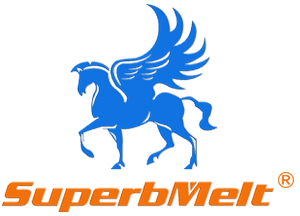
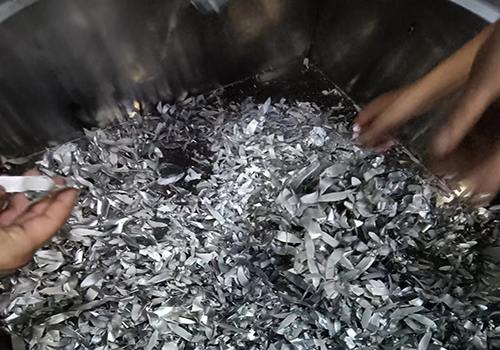
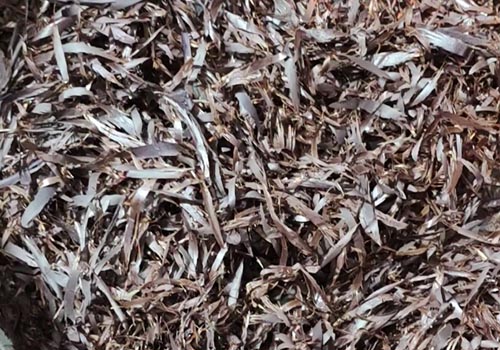
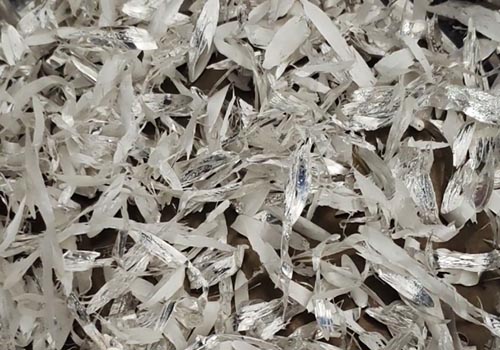
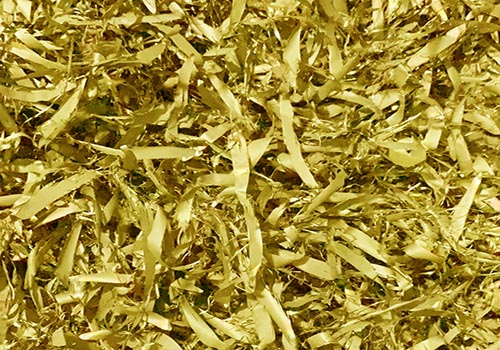
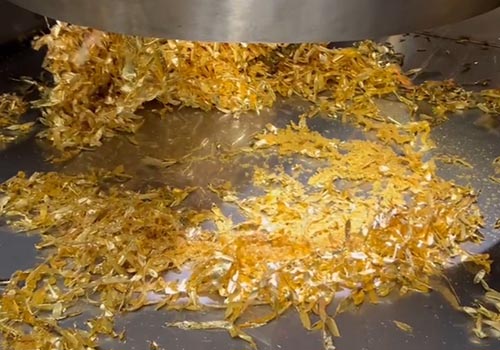
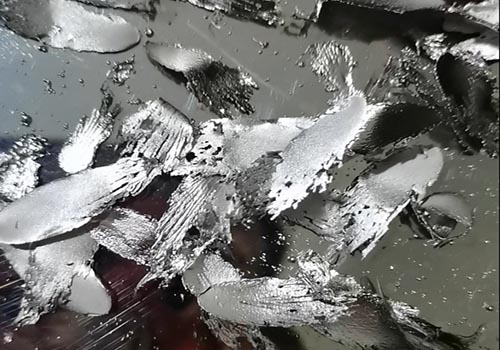
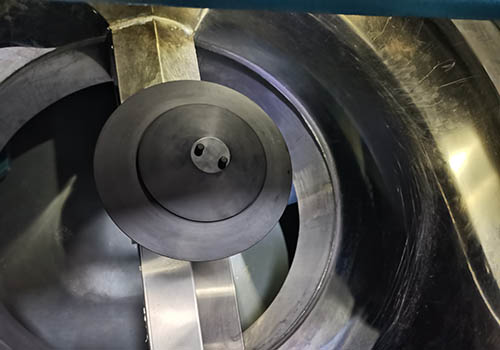
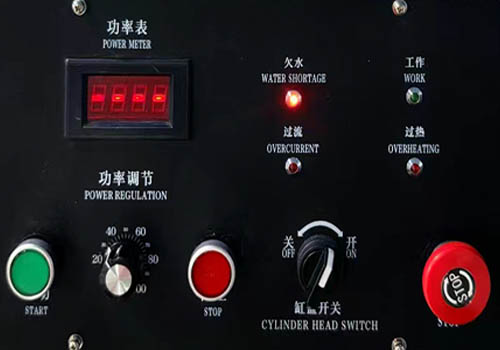
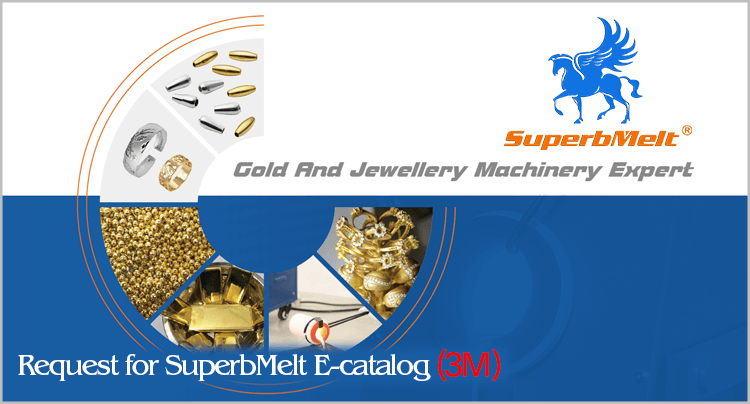
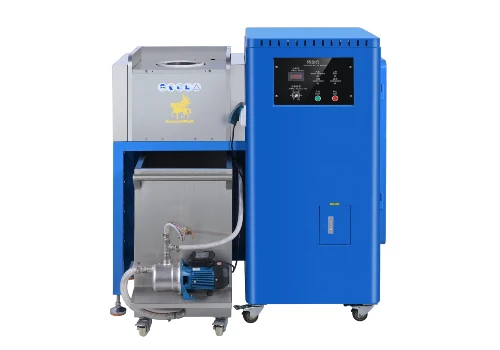
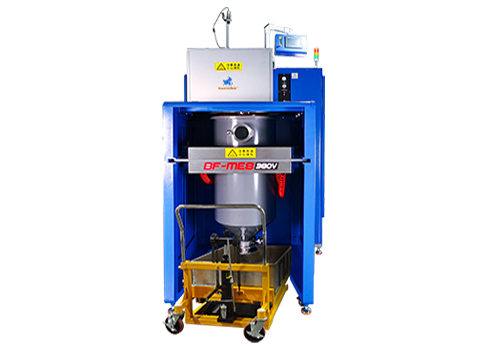
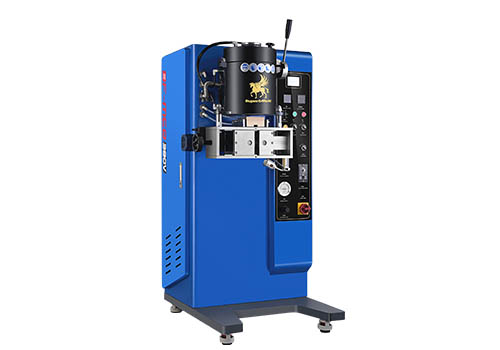
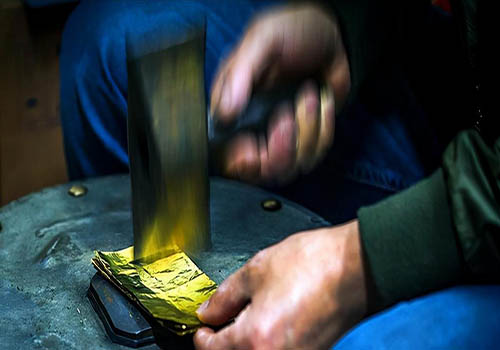
 © Copyright 2008-2026 Superb Electromachinery Co., Limited
© Copyright 2008-2026 Superb Electromachinery Co., Limited